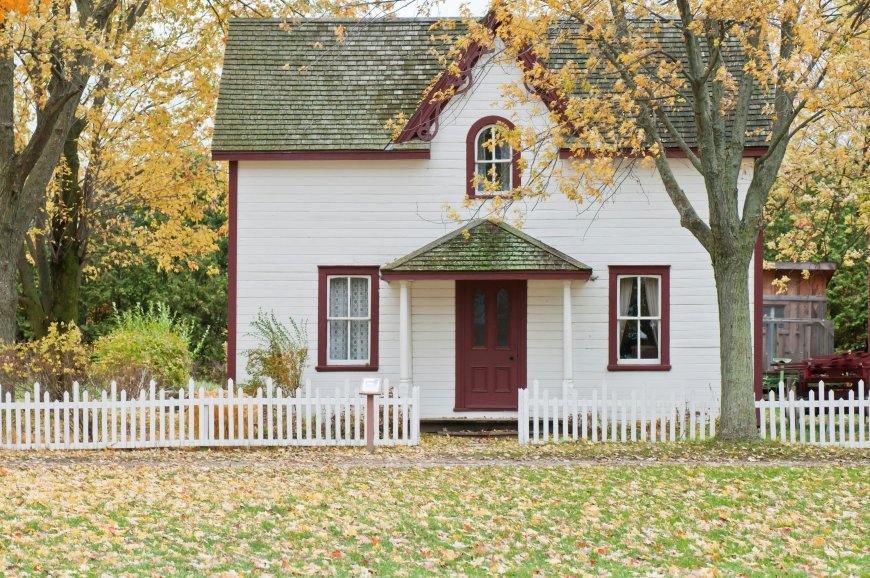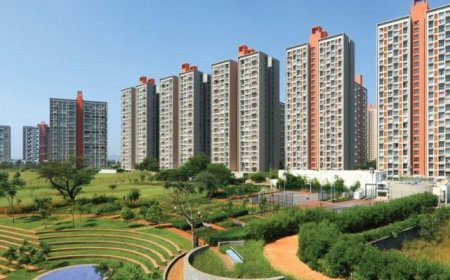Understanding Singapore’s Private Property Market for New Buyers
New to property in Singapore? Learn about the different types of private housing and what you should consider before buying.

Singapore's private property market is a dynamic and competitive space that continues to attract local and foreign buyers alike. With limited land and a growing population, private properties here are seen as both a lifestyle choice and a wealth-building tool. If you're a new buyer or investor, navigating this market might feel overwhelming. This article breaks down the types of private housing, eligibility requirements, and key considerations before you take the plunge.
Types of Private Properties in Singapore
Understanding the differences between property types is the first step toward making an informed purchase.
1. Condominiums
Condos are the most common form of private property in Singapore. These developments come with shared facilities such as swimming pools, gyms, BBQ pits, and function rooms. They are typically well-located and attract both owner-occupiers and investors. Prices can range widely depending on location and amenities.
2. Landed Properties
Landed homes include terrace houses, semi-detached houses, and bungalows. These offer the most space and privacy, often with gardens and multiple storeys. However, they are significantly more expensive and usually found in specific areas such as Bukit Timah or Seletar.
3. Cluster Houses
Cluster housing is a hybrid between condos and landed homes. These are landed properties within a gated community and come with shared facilities, offering the feel of a landed home with condo-style conveniences.
4. Executive Condominiums (ECs)
While technically a hybrid of public and private housing, ECs become fully private after 10 years. Initially sold only to eligible Singaporean citizens under certain income ceilings, they offer a more affordable entry into private housing.
Freehold vs Leasehold
Another key distinction in the private market is property tenure.
-
Freehold properties give the owner indefinite ownership. These are highly valued for their scarcity and potential long-term appreciation.
-
Leasehold properties, commonly 99 years, mean you technically lease the land from the government. While cheaper, these may depreciate as the lease nears expiry.
Eligibility and Restrictions
Private property in Singapore is generally open to Singaporeans, Permanent Residents (PRs), and foreigners. However, there are nuances:
-
Singaporeans face no restriction in buying any type of private property.
-
PRs and foreigners can buy condos and apartments but need special approval to purchase landed homes.
-
Foreign ownership is subject to Additional Buyers Stamp Duty (ABSD), which increases overall purchase cost.
Costs Involved in Buying Private Property
Beyond the property price, buyers should be prepared for additional costs:
-
Stamp Duties: Includes Buyers Stamp Duty (BSD) and ABSD if applicable.
-
Legal Fees: For engaging a conveyancing lawyer.
-
Home Loan Down Payment: Typically 25% of the purchase price, with 5% in cash.
-
Maintenance Fees: Monthly fees for upkeep of condo facilities.
Financing Your Purchase
Home loans in Singapore are regulated by the Monetary Authority of Singapore (MAS). Here are the key concepts:
-
Loan-to-Value (LTV) Limit: Determines the maximum loan you can get based on the property value.
-
Total Debt Servicing Ratio (TDSR): Caps your monthly debt obligations to 55% of gross monthly income.
-
Interest Rates: Depending on whether you choose fixed or floating rates, this can significantly impact your monthly instalments.
Do note that banks often value properties differently than the selling price, and the loan amount is based on this valuation.
Resale vs New Launch
Both come with their benefits and trade-offs.
New Launch Condos
-
Typically come with early bird pricing
-
Brand-new facilities and modern layouts
-
May take 23 years to complete
Resale Units
-
Ready for immediate occupancy
-
More room for negotiation
-
Established neighbourhood and infrastructure
Factors to Consider Before Buying
-
Location Proximity to MRT stations, schools, and workplaces is key.
-
Developer Reputation Well-known developers tend to deliver quality projects on time.
-
Facilities and Layout Consider if the amenities and unit layout suit your lifestyle.
-
Future Developments Research the URA Master Plan for upcoming projects nearby.
-
Exit Strategy Whether youre buying to live or invest, consider rental yield and capital appreciation potential.
Conclusion
Singapore's private property market offers a wide array of options for both homeowners and investors. By understanding the types of private housing, eligibility requirements, financing methods, and associated costs, new buyers can approach their property journey with confidence. While the property market may appear intimidating, with proper research and planning, buying your first private property can be a rewarding and secure investment for the future.
Important Links
Discover the Future of Upper Thomson Living at the Thomson View En Bloc Condo Showflat
Discover the Charm of Living at Thomson View Condo
Discover the Charm of Thomson View Condo Showflat
The Impact of Upcoming MRT Lines on Property Prices in Singapore
What First-Time Buyers Should Know About Condo Maintenance Fees in Singapore
Thomson View En Bloc Condo Showflat
Thomson View En Bloc Condo Showflat





































